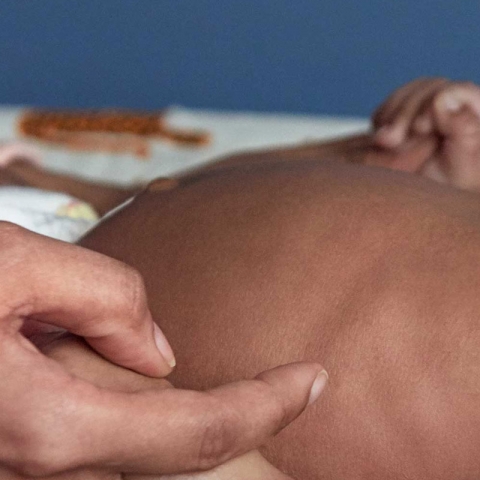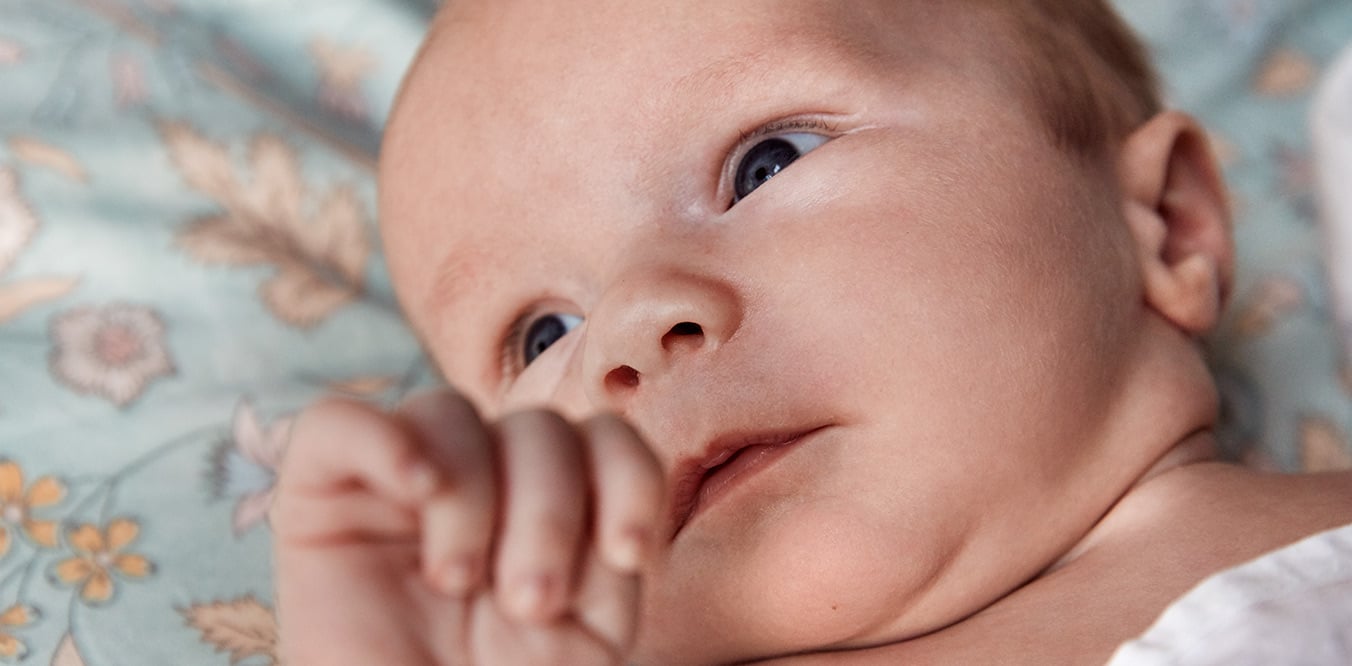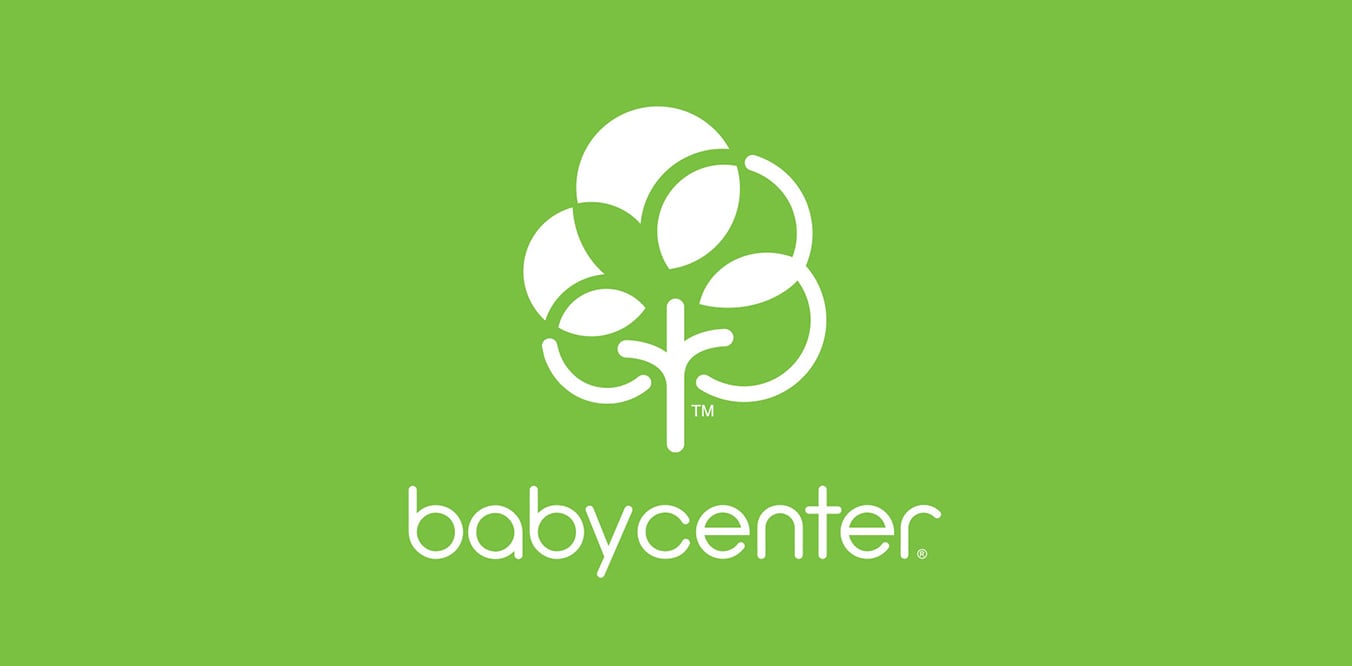Managing Eczema
Eczema is an itchy, red rash categorized by periods of flare. Identifying and avoiding the triggers as well as proper bathing and moisturization are an important part of managing your child’s eczema. Here are additional tips to help your child cope with this common skin irritation.
Managing Your Child’s Eczema
What is Eczema?
Eczema is an itchy, red rash which is characterized by periods of flare. The most common form of Eczema is Atopic Dermatitis. Though eczema can appear anywhere on the body, typical body sites are the hands and feet, the inside bend of the elbows, behind the knees, and around the ankles and wrists. It can also appear on the face, particularly the cheeks, and on the neck and upper chest. The skin around the eyes, including eyelids, may also be affected. Depending on the age of the patient, it may be more commonly noticeable in particular areas. The diaper area is usually spared. Scratching can cause redness and swelling and further worsening of symptoms, particularly itch.
Daily Care and Prevention
Proper bathing and moisturizing are essential for the daily care of skin with eczema. Moisturizers can help trap water in the skin, helping to keep it more flexible and less likely to crack. It is important to continue a regular moisturizing routine even when your child does not have a flare. Mild cleansing can also help prepare the skin for topical therapies. Moisturization and gentle cleansing can help keep the barrier intact and help prevent future flares. An effective skin care regimen can help restore and strengthen the skin’s moisture barrier, helping to prevent the recurrence of itchy, dry, irritated uncomfortable skin.
BATHING TIPS
- Use lukewarm water when washing your child
- Use a mild, non-drying, fragrance free cleanser
- Avoid body sponges and washcloths
- Gently pat skin dry with a towel
MOISTURIZING TIPS
- Apply moisturizers to wet skin (within 3 minutes of taking a bath or shower)
- Apply any special skin medications (If prescribed by your child’s doctor, apply any special medications first and then liberally apply moisturizer. For some medications you may be advised to wait 15-20 minutes after applying before applying moisturizer, so be sure to follow your doctor’s instructions.)
- Consider using a moisturizer with oat, such as AVEENO® Eczema Therapy Moisturizing Cream, to help reduce the itching and irritation of eczema
- Reapply throughout the day MORE TIPS • Keep your child’s fingernails short
- Have him or her wear open-weave, loose-fitting, cotton-blend clothing
- Maintain an even temperature and humidity in your home
- Wash new clothes before putting them on your child
- Use dye-free and fragrance-free detergents and avoid using dryer sheets
- Use sunscreens made for sensitive skin
- As always, talk to your child’s doctor if you have any questions or concerns
Common Eczema Triggers
Identifying and avoiding your trigger or triggers as well as proper bathing and moisturizing are an important part of your eczema management plan.
IRRITANTS: Some things can make eczema worse. They are called irritants. Over time, you’ll learn which things cause problems for your child. Common irritants are:
- Soaps, detergents & dryer sheets
- Bubble-bath & certain shampoos
- Wool or other coarse fabrics
- Fragrances & dyes
- Contact with juice from acidic fruits, raw meats, onion and garlic
- Wash new clothes before putting them on your child
- Use dye-free and fragrance-free detergents and avoid using dryer sheets
- Use sunscreens made for sensitive skin
ALLERGENS: For some people, their skin gets itchy and inflamed when they’re in contact with certain things, causing an allergic reaction. Here are some common allergens:
- House dust mites
- Pets
- Pollen (seasonal)
- Molds
To reduce house dust mites:
- Vacuum and wet-dust the bedroom floor and furniture frequently
- Keep soft toys to a minimum
ENVIRONMENT: Extremes of temperature and humidity may trigger a flare-up of eczema symptoms. Environmental triggers include:
Hot or cold temperature
High or low humidity
Cigarette smoke
Pollution
- Avoid letting your child get too hot or too cold
- Maintain an even temperature and humidity in your home
FOOD: Less than 1 in 10 children with atopic eczema have a food allergy which can make symptoms worse. In general, it is young children with severe eczema who may have a food allergy. The most common foods which trigger eczema include:
Dairy products
Eggs
Nuts and seeds
Wheat
- If you suspect a food is making eczema symptoms worse, see your child’s doctor. You may be asked to keep a diary to help identify one or more suspect foods.
STRESS: Stress doesn’t cause eczema, but stress, anger and frustration can make symptoms worse. If your child is having problems at daycare or school, you may notice the eczema getting worse. Stress can also cause habit scratching. It is thought that scratching can make itch worse, which makes you want to scratch more, etc. This is called the itch-scratch cycle and can make eczema worse.
- Keep your child’s fingernails short. Consider cotton gloves or mittens at night if your child tends to scratch in his/her sleep
What’s New?
JOHNSON'S® proudly stays up to date with the latest innovations, products, and trends in healthcare. Because the more we know, the more you know too.






By registering, you agree to receive additional transactional, marketing/promotional and sample material from the Johnson's Baby Professional website. Your personal information will be used to fulfill your request for samples and/or patient education materials. Your information will be shared only with JNTL Consumer Health (Philippines) Inc., its affiliates, and any third parties working on their behalf to fulfill your request, and will be governed by our site's Privacy Policy.